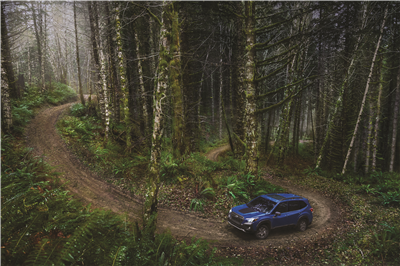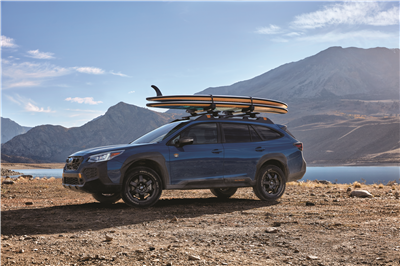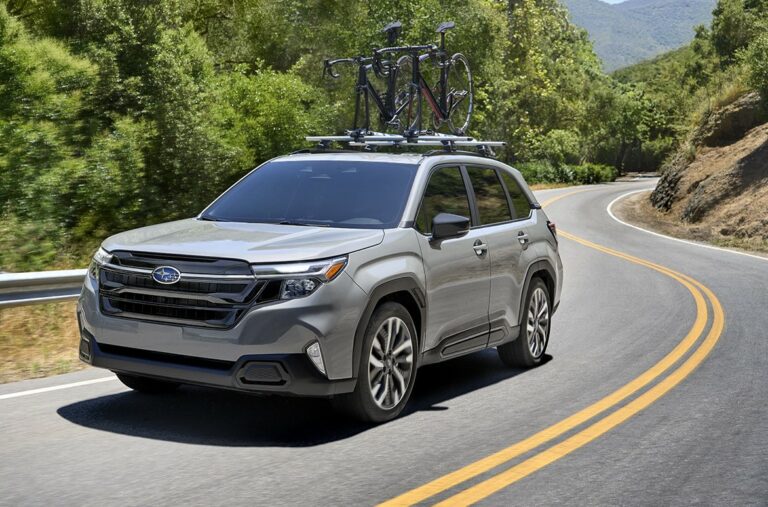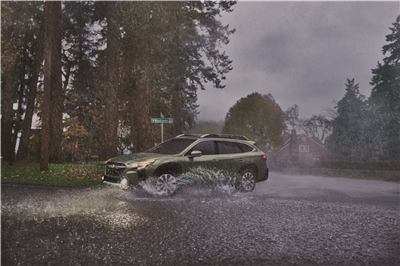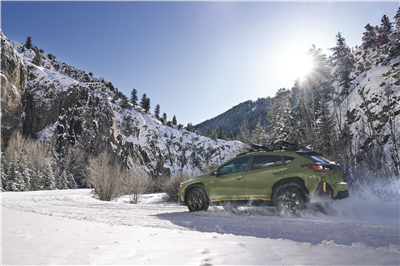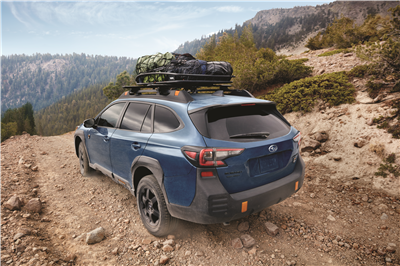Subaru Ownership Dilemma: Leasing Versus Buying
For Connecticut drivers considering a new Subaru, one of the biggest decisions is whether to lease or buy. Both options have their advantages, and the right choice depends on your driving needs, lifestyle, and preferences. In this comprehensive guide, we’ll explore the pros and cons of leasing and buying a Subaru, drawing insights from an exclusive interview with Buddy Blichfeldt, a seasoned expert at Quality Subaru in Wallingford, CT.
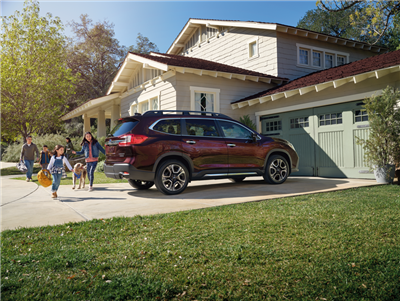
The Leasing Advantage: Flexibility and Cost-Effectiveness
According to Blichfeldt, leasing a Subaru offers several compelling benefits, particularly for drivers who value flexibility and cost-effectiveness. “The beauty of the Subaru is the longevity of the car and how it’s built and the quality, the precision, everything that they do in the design and the execution and the manufacturing of it is designed to last,” he explains. “And then because it’s so tailor-made for Connecticut, it has a strong desirability in the used car market.”
1. Low Monthly Payments and Access to High-End Models
One of the primary advantages of leasing is the lower monthly payments compared to financing or buying outright. Blichfeldt elaborates, “You’re only paying for the portion that you’re using. So if a vehicle has a very, very high resale value, then the manufacturer has the confidence to put a high-ending residual value, which is the ending value of the vehicle after the lease.”
This residual value translates to lower monthly payments, making it easier to afford higher-end models with premium features. “You can get into much more vehicle in terms of the features that you desire and still keep your budget to where you want it to be,” Blichfeldt notes.
2. Avoiding Depreciation and Accident Risks
Leasing also protects you from the risks of depreciation and accidents. “If the vehicle gets into an accident, it now has an accident indicator report. Well, you don’t own the vehicle. You turn it back in, you get it repaired. You turn it back into the leasing company, which in this case would be Subaru Financial Services. Guess what? They’re going to be the one that had just inherited a vehicle with a bad accident report,” Blichfeldt explains.
3. Warranty Coverage and Maintenance Savings
Another advantage of leasing is the comprehensive warranty coverage during the lease term. “Having a five-year, 60,000-mile powertrain warranty, you can, you know, if you did a three-year lease and you drove 20,000 miles a year, you’re still within that warranty,” Blichfeldt says. Additionally, leases often require minimal maintenance, saving you money on repairs and upkeep.
The Buying Advantage: Ownership and Customization
While leasing offers numerous benefits, buying a Subaru may be the better choice for certain drivers, particularly those who plan to own the vehicle for an extended period or desire the freedom to modify and customize their ride.
1. Long-Term Ownership and Unlimited Mileage
For Subaru enthusiasts who intend to keep their vehicle for many years, buying may be the preferred option. “Those are gonna be the customers that are the Subaru, the diehard Subaru people that literally are gonna own that car for the next 15 to 20 years,” Blichfeldt explains. Buying also eliminates mileage restrictions, allowing you to drive as much as you need without incurring additional fees.
2. Customization and Modifications
If you’re the type of driver who enjoys modifying and customizing your vehicle, buying is the way to go. “When you lease a vehicle, you have to keep it the way it is. You really can’t modify it,” Blichfeldt cautions. Leased vehicles must be returned in their original condition, making modifications off-limits.
3. Equity and Resale Value
While leasing protects you from depreciation risks, buying a Subaru can also be a wise investment due to the brand’s exceptional resale value. “You know, you’re getting a vehicle that has going to maintain its resale value,” Blichfeldt says. Additionally, if the vehicle’s value exceeds the residual value set by the manufacturer, you may have equity that can be applied to your next purchase.
Factors to Consider: Mileage, Lifestyle, and Driving Habits
When deciding between leasing and buying a Subaru, it’s essential to consider your specific driving needs, lifestyle, and habits. Blichfeldt highlights several key factors to keep in mind:
1. Mileage
“There’s different programs that they have when in terms of the manufacturer sets up a residual value. Now we say residual value, that’s the ending value of the vehicle. So clearly a vehicle that’s going to have low miles is going to have a much higher residual value. Therefore, you would have lower payments on it.”
For high-mileage drivers, leasing may be more cost-effective, as manufacturers account for the additional depreciation. However, if you plan to drive an excessive number of miles, buying may be the better option to avoid mileage penalties.
2. Lifestyle and Driving Habits
“Those are customers that probably are not good candidates for leasing. So the people that are gonna unfortunately have a lot of wear and tear, they’re gonna need to buy that vehicle and otherwise when you go to turn it in at the end of the lease, you’re gonna get a bill,” Blichfeldt warns.
If your lifestyle or driving habits are likely to result in excessive wear and tear, buying may be the safer choice to avoid potential fees at the end of the lease.
3. Business Use and Tax Implications
For business owners or those who can deduct vehicle expenses, leasing may offer tax advantages. “Most of our high-mileage drive drivers are people that are in professions such as realtors or, you know, even Uber drivers or something along the lines of a sales outside salesperson where they’re driving the vehicle and they’re therefore able to expense it for the business that they’re using,” Blichfeldt notes.
Expert Guidance at Quality Subaru
Regardless of whether you choose to lease or buy, the team at Quality Subaru in Wallingford, CT, is dedicated to helping you make an informed decision. “We want you to feel good about what you’re doing. So whether we present it to you and show you the financial benefits or just have to get it to where you have a good peace of mind, you’re gonna leave feeling good about whichever way you decided to buy your Subaru,” Blichfeldt assures.
Additionally, Quality Subaru stays up-to-date on manufacturer incentives and special programs, ensuring you can take advantage of the best deals available. “Subaru is always going to incentivize vehicles based upon things that they’re looking to achieve,” Blichfeldt explains, citing the example of the Solterra electric vehicle, which is primarily leased due to federal tax credits and other incentives.
By carefully considering your driving needs, lifestyle, and preferences, and seeking expert guidance from the team at Quality Subaru, you can make an informed decision on whether leasing or buying a Subaru is the right choice for you in Connecticut.
FAQ
Can I modify a leased Subaru?
No, you cannot modify a leased Subaru. Leased vehicles must be returned in their original condition at the end of the lease term.
Is leasing or buying better for high-mileage drivers?
For high-mileage drivers, leasing may be more cost-effective, as manufacturers account for additional depreciation. However, if you plan to drive an excessive number of miles, buying may be the better option to avoid mileage penalties.
Can I get out of a Subaru lease early?
Yes, you can get out of a Subaru lease early, but there may be early termination fees or other penalties involved. It’s best to discuss your options with the leasing company or dealership.
What happens if my leased Subaru gets in an accident?
If your leased Subaru gets in an accident, you can turn it back in to the leasing company (Subaru Financial Services) after getting it repaired. The leasing company will then inherit the vehicle with the accident report, protecting you from potential value loss.
Can I buy my leased Subaru at the end of the lease term?
Yes, you typically have the option to purchase your leased Subaru at the end of the lease term. If the vehicle’s value exceeds the residual value set by the manufacturer, you may have equity that can be applied to the purchase price.



